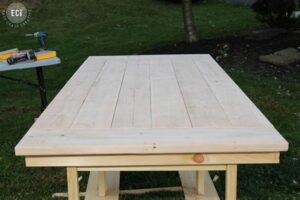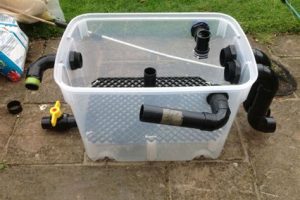Table of Contents
Discover the world of DIY farming tools and unleash your inner green thumb! From handy garden implements to innovative irrigation systems, explore a wide range of tools that will help you cultivate your own thriving farm. Whether you’re a seasoned farmer or just starting out, these DIY tools will make your agricultural endeavors easier and more efficient. Start growing your own food and enjoy the satisfaction of self-sufficiency with these essential farming tools.
When it comes to farming, having the right tools can make all the difference in achieving success. That’s where DIY farming tools come into play. These innovative and cost-effective solutions allow farmers to take matters into their own hands, harnessing their creativity and resourcefulness to design and build tools tailored to their specific needs. With a wide range of options available, from simple hand tools to advanced machinery, the possibilities are endless. Whether you’re a seasoned farmer looking to optimize your operations or a beginner eager to embark on your agricultural journey, DIY farming tools offer an exciting avenue to explore. In this article, we will explore the benefits and applications of these tools, providing you with valuable insights and inspiration for your farming endeavors.
The Importance of DIY Farming Tools
Farming is an essential activity that requires dedication, hard work, and the right tools. However, investing in professional farming tools can be quite expensive, especially for small-scale farmers or hobbyists. That’s where DIY farming tools come in handy. By using your creativity and basic materials, you can create effective tools that will assist you in various farming tasks. In this article, we will explore the importance of DIY farming tools and provide you with some practical ideas to get started.
Garden Hand Trowel
A garden hand trowel is a versatile tool used for various gardening tasks, such as digging, planting, and weeding. It consists of a handle and a pointed metal scoop at the end. You can easily create your own garden hand trowel by repurposing an old spoon or fork. Simply attach the utensil to a wooden handle, and you have a DIY garden hand trowel ready to use!
Garden Rake
A garden rake is an indispensable tool for leveling soil, removing debris, and maintaining the overall health of your garden. Building your own garden rake is a simple project that requires some wooden planks and metal teeth. By cutting the wood into a desired shape, attaching the metal teeth, and securing it with nails or screws, you can easily create a DIY garden rake.
Compost Bin
A compost bin is an essential tool for organic farming. It allows you to recycle kitchen scraps and yard waste into nutrient-rich compost for your plants. Creating your own compost bin is a cost-effective and eco-friendly option. You can use old pallets or wooden boards to construct a simple and functional compost bin. Just ensure proper ventilation and regularly turn the compost to facilitate decomposition.
Seedling Trays
Seedling trays are used for starting seeds indoors before transplanting them into the garden. Instead of buying expensive plastic trays, you can create your own using household materials. Egg cartons, yogurt cups, or even toilet paper rolls can serve as excellent DIY seedling trays. Just make sure to poke holes in the bottom for drainage and provide a suitable growing medium for your seedlings.
Chicken Wire Fencing
Chicken wire fencing is a versatile tool that can be used for protecting your garden from pests, creating trellises, or building enclosures for poultry. You can easily create a DIY chicken wire fence by attaching the wire to wooden or metal posts. This simple yet effective fencing solution will help safeguard your plants and animals without breaking the bank.
Rainwater Harvesting System
Water conservation is crucial in farming, and a rainwater harvesting system can significantly reduce your reliance on municipal water supplies. Constructing a DIY rainwater harvesting system involves setting up gutters, downspouts, and storage containers to collect and store rainwater. This sustainable solution ensures that you have a readily available water source for irrigating your crops and maintaining their health.
Garden Tool Organizer
Keeping your gardening tools organized is essential for efficiency and preventing damage. Instead of purchasing expensive tool organizers, you can create your own using materials such as a wooden pallet, hooks, and nails. By attaching the hooks to the pallet, you can hang your tools and keep them within easy reach. This DIY garden tool organizer will save you time and ensure that your tools are properly stored.
Plant Marking Stakes
Plant marking stakes are essential for labeling your plants and keeping track of their growth. Instead of purchasing pre-made stakes, you can create your own using materials like wooden popsicle sticks or old rulers. Simply write the name of the plant on the stake and insert it into the soil near the plant. This DIY solution will help you easily identify your plants and maintain proper care.
Wheelbarrow
A wheelbarrow is an indispensable tool for transporting heavy loads such as soil, compost, or harvested crops. Building your own wheelbarrow may require more advanced carpentry skills, but it can be a rewarding project. By repurposing an old wheel, metal or wooden frame, and a sturdy container, you can create a DIY wheelbarrow that suits your specific needs.
DIY Greenhouse
A greenhouse provides a controlled environment for growing plants throughout the year. Constructing your own DIY greenhouse allows you to save money while enjoying the benefits of extended growing seasons. You can utilize readily available materials such as PVC pipes, plastic sheeting, and wooden frames to build a cost-effective greenhouse. This DIY project will enable you to protect your plants from harsh weather conditions and extend your gardening efforts.
In conclusion, DIY farming tools offer a cost-effective and practical solution for small-scale farmers and gardening enthusiasts. By using your creativity and repurposing everyday materials, you can create a wide range of essential tools for various farming tasks. Whether it’s a simple garden hand trowel or a more complex DIY greenhouse, these tools will help you achieve success in your farming endeavors while saving money in the process.
The Importance of DIY Farming Tools
Diy farming tools play a vital role in modern agriculture, offering numerous benefits to farmers worldwide. In today’s fast-paced and competitive agricultural industry, efficiency and productivity are paramount. By utilizing DIY farming tools, farmers can increase their efficiency, reduce labor costs, and improve overall productivity. These tools provide farmers with the flexibility to adapt and customize the tools according to their specific farming needs, allowing them to optimize their operations and stay ahead in the market.
Essential DIY Farming Tools for Small-scale Farms
Small-scale farmers often face limited resources, making the use of DIY farming tools crucial for their operations. These tools provide affordable and accessible solutions that empower farmers to enhance their productivity without relying on expensive machinery. Hand seed planters, hand-held shovels, and homemade compost bins are just a few examples of essential DIY farming tools for small-scale farms. These tools enable farmers to efficiently plant seeds, tend to their crops, and manage organic waste, ensuring maximum output with minimal resources.
Building Your Own Greenhouse
Constructing a greenhouse is one of the most popular DIY projects among farmers. Greenhouses provide controlled environments for crop production, allowing farmers to extend their growing season and protect their plants from unfavorable weather conditions. Whether it’s a traditional wooden-framed structure or a PVC-based one, DIY greenhouses offer farmers more control over their crop production. Farmers can choose the size and design of their greenhouse, select the ideal materials, and incorporate features that cater to their specific crop requirements.
Creating Homemade Irrigation Systems
Water scarcity is a considerable challenge faced by many farmers, especially in regions with limited water resources. Homemade irrigation systems are essential DIY farming tools that help farmers optimize water usage and ensure efficient crop irrigation. With basic materials like plastic pipes, valves, and connectors, farmers can create efficient drip or sprinkler irrigation systems. These cost-effective DIY solutions enable farmers to conserve water and supply it precisely where their crops need it the most, promoting healthy plant growth and minimizing water wastage.
Designing DIY Chicken Coops
Raising chickens for eggs or meat is a popular practice among many farmers. Instead of purchasing pre-made chicken coops, designing your own DIY chicken coop offers several advantages. Farmers can customize the coop according to their flock size, incorporate features such as nesting boxes, roosting bars, and ventilation systems, and ensure the well-being of their feathered friends. DIY chicken coops not only provide a comfortable and secure environment for the chickens but also allow farmers to save costs and have complete control over the design and materials used.
The Advantages of Building Your Own Farm Fencing
Farm fencing plays a crucial role in protecting livestock, defining boundaries, and preventing crop damage. Constructing DIY farm fencing offers multiple benefits to farmers. Firstly, it saves costs on professional installation, allowing farmers to allocate their resources more efficiently. Secondly, DIY farm fencing enables farmers to tailor the design and materials based on their specific needs. Whether using wood, wire mesh, or electric wires, farmers have the flexibility to choose the most suitable option for their farm. Additionally, DIY farm fencing is easy to maintain and repair, further reducing long-term expenses.
Constructing DIY Seedling Starters
Starting seedlings indoors before transferring them to the field is a common practice amongst farmers. Creating DIY seedling starters using recycled materials not only helps reduce waste but also lowers expenses. Farmers can use materials such as newspaper pots or egg cartons to create homemade seedling starters. These DIY tools provide a controlled environment for seed germination, enhancing germination rates and overall crop quality. By utilizing DIY seedling starters, farmers can ensure a successful and efficient start to their crops.
Repairing and Maintaining DIY Farming Equipment
Farmers heavily rely on various machinery and equipment throughout the agricultural season. Knowing how to repair and maintain these tools is essential to minimize downtime and repair costs. DIY repairing guides and resources enable farmers to troubleshoot and fix common issues with their farming equipment. By being self-sufficient in equipment maintenance, farmers can keep downtime to a minimum and ensure optimal performance in their operations. Regular maintenance and timely repairs are key to maximizing the lifespan and efficiency of farming equipment.
When it comes to farming, having the right tools is essential for efficiency and productivity. While there are many professional-grade farming tools available on the market, some farmers opt for DIY farming tools for various reasons. However, it is important to consider the advantages and disadvantages of using DIY farming tools before making a decision.
Here are some points to consider:
- Cost-effectiveness: One of the main reasons why farmers choose DIY farming tools is their cost-effectiveness. Building your own tools can often be cheaper than purchasing professional-grade equipment. This can be especially beneficial for small-scale farmers or those on a tight budget.
- Customization: DIY farming tools allow farmers to customize their equipment according to their specific needs. By building their own tools, farmers can tailor them to suit the size of their farm, the type of crops they grow, or any other unique requirements. This level of customization can lead to better results and increased efficiency.
- Flexibility: Another advantage of DIY farming tools is the flexibility they offer. Farmers can modify or adapt their tools as needed to address changing farming practices or new challenges that may arise. This adaptability can be a significant advantage in an ever-evolving industry.
- Learning opportunity: Building DIY farming tools provides a valuable learning opportunity for farmers. It allows them to gain a deeper understanding of the mechanics and functionality of the tools they use. This knowledge can be empowering and enable farmers to troubleshoot and repair their equipment more effectively.
However, it is important to note that there are also some potential drawbacks to using DIY farming tools:
- Limited expertise: Unless farmers have a background in engineering or mechanics, they may lack the expertise required to build safe and efficient farming tools. Professional-grade tools are built and tested by experts in the field, ensuring their reliability and safety.
- Time-consuming: Building DIY farming tools can be time-consuming, especially for farmers who already have a busy schedule. The time spent on designing, sourcing materials, and constructing the tools could potentially take away from other farm management tasks.
- Durability and longevity: Professional-grade tools are often built to withstand the test of time and the rigors of daily farming operations. DIY tools may not have the same level of durability, leading to more frequent repairs or replacements.
- Lack of warranty and support: Purchasing professional-grade tools usually comes with warranties and access to customer support. In contrast, DIY tools may not offer the same level of after-sales service or guarantees.
In conclusion, while DIY farming tools can offer cost-effectiveness, customization, flexibility, and a valuable learning opportunity, it is important to carefully evaluate the pros and cons. Farmers should consider their own expertise, time availability, and long-term operational needs before deciding whether to invest in professional-grade tools or pursue the DIY route.
Dear esteemed blog visitors,
As we conclude our discussion on DIY farming tools, I would like to extend my heartfelt gratitude for your time and interest in exploring this fascinating topic. Throughout this article, we have delved into the world of homemade farming tools and their invaluable contribution to the agricultural industry. With each passing paragraph, we uncovered the benefits, practicality, and efficiency of these tools, ultimately highlighting their significance in improving farm productivity.
From the outset, it became evident that DIY farming tools offer an array of advantages. These tools are not only cost-effective but also customizable to suit the specific needs of different farms. By utilizing readily available materials, farmers can create tools that cater to their unique requirements, thereby optimizing efficiency and reducing expenses. Moreover, the ability to repair and modify these tools without relying on external assistance adds another layer of convenience.
Transitioning further, we explored some of the most popular DIY farming tools, such as the broadfork, hoop house, and self-watering containers. Each tool showcased its distinct functionality and ease of construction. The broadfork, for instance, demonstrated its effectiveness in loosening soil and preparing it for planting. On the other hand, the hoop house proved to be an excellent solution for extending the growing season and protecting crops from harsh weather conditions. Lastly, self-watering containers emerged as a practical alternative for maintaining optimal moisture levels in potted plants.
In conclusion, DIY farming tools provide a compelling proposition for farmers seeking efficient, affordable, and tailor-made solutions. By embracing the concepts and ideas shared in this article, you can embark on your own journey of creating tools that revolutionize your farming practices. Remember, innovation and resourcefulness are key in not only sustaining but also enhancing agricultural productivity. Whether you are a seasoned farmer or an aspiring one, the realm of DIY farming tools holds immense potential for you.
Thank you once again for your readership and engagement. I hope our exploration of DIY farming tools has been enlightening and inspiring for you. Wishing you success in all your farming endeavors!
Sincerely,
[Your Name]
Video Diy Farming Tools
People also ask about DIY Farming Tools:
What are some common DIY farming tools?
- Hand trowels and forks
- Garden hoes and rakes
- Scythes and sickles
- Pruning shears and loppers
- Seed planters and dibbers
- Wheelbarrows and carts
- Drip irrigation systems
How can I make my own farming tools?
- Repurpose old materials like wooden handles, metal blades, or plastic containers
- Learn basic blacksmithing or carpentry skills to create custom tools
- Follow online tutorials or attend workshops to build specific tools
- Utilize improvisation by adapting everyday objects for farming tasks
Are DIY farming tools effective?
What are the advantages of using DIY farming tools?
- Cost savings compared to purchasing expensive commercial tools
- Flexibility to create tools tailored to individual farming methods and requirements
- Promotion of self-sufficiency and resourcefulness
- Opportunity for creativity and innovation in farming practices
- Reduced environmental impact by reusing and repurposing materials
Can DIY farming tools be used on a large scale?
Some common DIY farming tools include:
To make your own farming tools, you can:
Yes, DIY farming tools can be highly effective when designed and built properly. They offer cost-saving alternatives to commercially available tools and can be customized to suit specific farming needs. However, it’s important to ensure that DIY tools are safe, durable, and appropriate for the intended use.
The advantages of using DIY farming tools include:
While DIY farming tools are commonly used on small-scale farms, they can also be adapted for larger operations. However, it’s important to consider factors such as efficiency, durability, and labor requirements when scaling up DIY tools. In some cases, commercially available machinery may be more suitable for large-scale farming.






